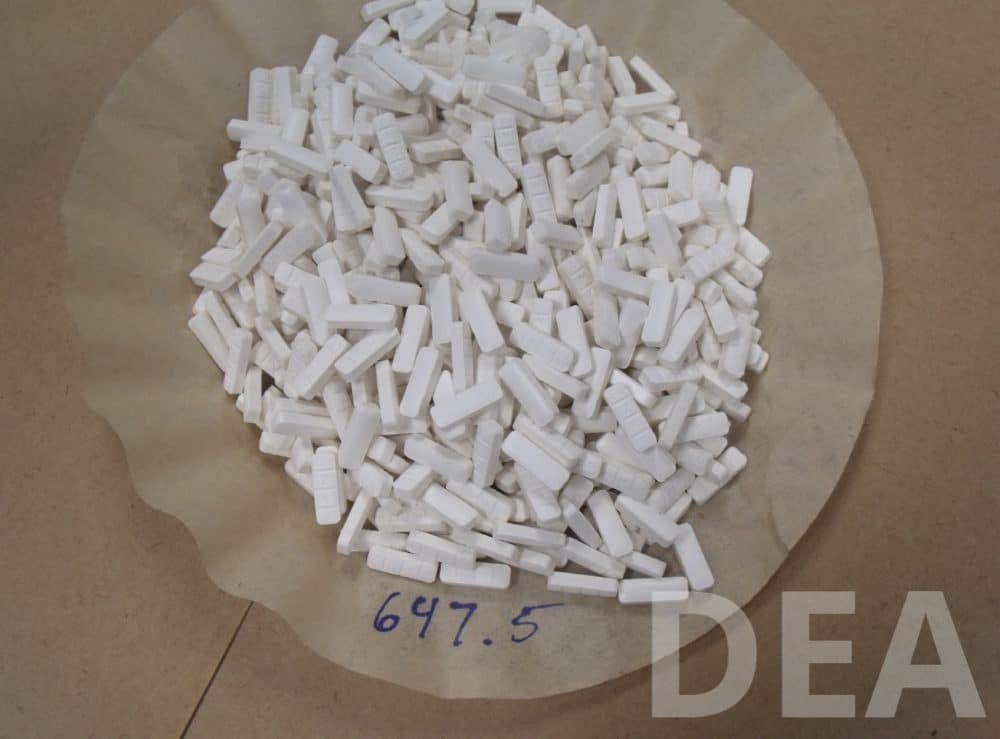The 2020 National Survey on Drug Use and Health reported over 40 million Americans aged 12 and over had a substance use disorder (SUD) in the surveyed year. Of those, the survey identified 28.3 million with alcohol use disorder (AUD), 18.4 million with an illicit drug use disorder, and 6.5 million with co-occurring SUD and AUD.1
Substance use disorders are defined by four key criteria; loss of control over how much and how often a person is using, experiencing social and occupational consequences as a direct result of use, high risk behavior as a result of use, and increased tolerance and physical withdrawal symptoms when people stop using. SUD is a chronic, relapsing-remitting disease that can be managed but not cured.2
What Does It Mean to Relapse?
Many chronic conditions are relapsing-remitting disorders, which means symptoms are present or worse during the relapse cycle and better or absent during remitting cycles. With substance use disorder, remission means you are in an active state of recovery and abstaining from substance use, while relapse means you have returned to drug or alcohol use after a period of abstinence.3
Researchers believe addictive substances change brain functions, increasing the risk of relapse even after years of sobriety.4 However, addiction is a treatable disorder, and many have achieved long-term sobriety.
How Does Substance Use Affect the Brain?
Addictive substances interact with your brain’s reward center, triggering abnormally high levels of “feel good” chemical messengers like dopamine, which elevates pleasurable emotions. Increased dopamine levels reinforce the substance’s use, motivating you to repeat the experience.5
Although dopamine increases naturally in response to any pleasant experience, alcohol and addictive drugs cause levels to surge much higher than normal. Changes to the brain can interfere with your judgment and self-control, making it difficult to stop using harmful substances.
As your brain adjusts to your usual dose, it begins to demand more significant amounts to deliver the desired effect. This demand for increasingly higher doses is called tolerance and signals a growing physical dependence on the substance.6 If you stop taking the addictive substance abruptly once tolerance and dependence have taken hold, you will experience withdrawal symptoms, some of which can be severe.7
Detoxing under medical supervision ensures you remain safe and much more comfortable than attempting to detox without professional support. Most experts agree medical detox followed by a quality drug or alcohol treatment program gives you the greatest chance of achieving long-term sobriety.8
Some experts believe relapse is part of the recovery process.9 Rather than viewing relapse as a failure, you can see it as an indication that your recovery process needs to be tweaked. Because relapse is often related to triggers, it is critical that you reinforce your skills for identifying and managing trigger situations.
What Are the Most Common Relapse Triggers?
Triggers are the greatest threat to relapse for those in recovery. Recognizing your personal triggers and having a plan in place to prevent them from disrupting your sobriety journey is vital.
The National Institute on Drug Abuse (NIDA) states, “Science has taught us that stress cues linked to drug use (such as people, places, things, and moods), and contact with drugs are the most common triggers for relapse.”10
A research paper titled “Alcohol Dependence, Withdrawal, & Relapse” found that “events that potentially trigger relapse drinking fall into three general categories: exposure to small amounts of alcohol (i.e., alcohol-induced priming), exposure to alcohol-related (i.e., conditioned) cues or environmental contexts, and stress.”11
When confronted with a trigger, you may experience intense cravings for your addictive substance and may find it difficult to remember why you chose to quit.12
The most common relapse triggers include the following.13,14,15
1. People
People you associate with your past substance use are powerful triggers to relapse, even if they are no longer using drugs or alcohol.
- Family members who continue to use or allow the use of addictive substances in the home environment
- Friends, co-workers, or other peers you drank or used drugs with
- People who supplied you with the addictive substance
- People who don’t understand recovery and offer you an addictive substance or make negative comments about addiction or abstinence
2. Places or Events
Places or events that remind you of your substance use endanger your sobriety. Simply driving or walking by a place you associate with substance use can be a trigger. You may focus on the fun you had at your favorite hangout rather than the negative consequences of your addictive behavior.
- Bars
- A relative’s home
- Special events, holidays, or other celebrations
- A party or any event that centers on substance use
3. Mood and Emotions
Your mood and emotions significantly affect your susceptibility to triggers. When you are not feeling mentally healthy, your sobriety is at risk. Research finds the following physical or mental health issues as common relapse triggers.
- Stress
- Anxiety
- Depression
- Boredom
- Loneliness
- Fatigue
As noted above, the NIDA warns stress is one of the most potent triggers of relapse, especially if you previously used drugs or alcohol to relieve stress. A study published in the journal Neuron concluded stress “promotes relapse in humans.”16
The Substance Abuse and Mental Health Services Administration (SAMHSA) describes your support network as your community, which includes support, friendship, love, and hope. According to SAMHSA, your community is one of the four dimensions of recovery. Lack of a robust support system makes you more vulnerable to stress, depression, hopelessness, and other negative emotions.17
Things like seeing the object of your addiction or associated paraphernalia can trigger strong cravings or relapse. Being around things that remind you of drug or alcohol use is interwoven with the previous three; seeing people or places you associate with substance use and experiencing stress or other negative emotions.
At some point, you may become complacent about your sobriety, especially if substantial time has passed since you first became sober.18 Protect your recovery by frequently reviewing how your life has improved since becoming sober, maintaining a solid support network including support group meetings, incorporating new sober activities and people into your life, and maintaining communication with your sponsor, therapist, or others who can help in case of emergency.
At Gallus Medical Detox Centers, we take the fear out of detox. Contact Gallus today to start the most important journey of your life.
Sources
- https://www.samhsa.gov/data/sites/default/files/2021-10/2020_NSDUH_Highlights.pdf
- https://www.verywellhealth.com/what-does-relapsing-remitting-mean-2564691
- https://www.verywellhealth.com/relapse-5208860
- https://nida.nih.gov/publications/drugfacts/understanding-drug-use-addiction
- https://nida.nih.gov/publications/drugfacts/understanding-drug-use-addiction#:~:text=These%20brain%20changes%20can%20be%20persistent%2C%20which%20is,but%20relapse%20doesn%27t%20mea%20n%20that%20treatment%20doesn%E2%80%99t%20work.
- https://nida.nih.gov/publications/drugfacts/understanding-drug-use-addiction
- https://www.verywellmind.com/what-is-withdrawal-how-long-does-it-last-63036
- https://nida.nih.gov/publications/principles-drug-addiction-treatment-research-based-guide-third-edition/principles-effective-treatment
- https://www.psychologytoday.com/us/blog/minority-report/202105/relapse-is-part-recovery
- https://nida.nih.gov/publications/drugs-brains-behavior-science-addiction/treatment-recovery#:~:text=Science%20has%20taught%20us%20that%20stress%20cues%20linked,medications%20used%20to%20treat%20drug%20addiction%20and%20withdrawal
- https://pubs.niaaa.nih.gov/publications/arh314/348-361.htm
- https://www.verywellmind.com/why-did-i-relapse-21900
- https://www.verywellmind.com/why-did-i-relapse-21900
- https://www.thesoberworld.com/2018/08/01/living-beyond-5/
- https://pubs.niaaa.nih.gov/publications/arh314/348-361.htm
- https://www.cell.com/neuron/fulltext/S0896-6273(13)00042-1
- https://www.samhsa.gov/find-help/recovery
- https://www.aagrapevine.org/magazine/1973/nov/complacency-insidious



